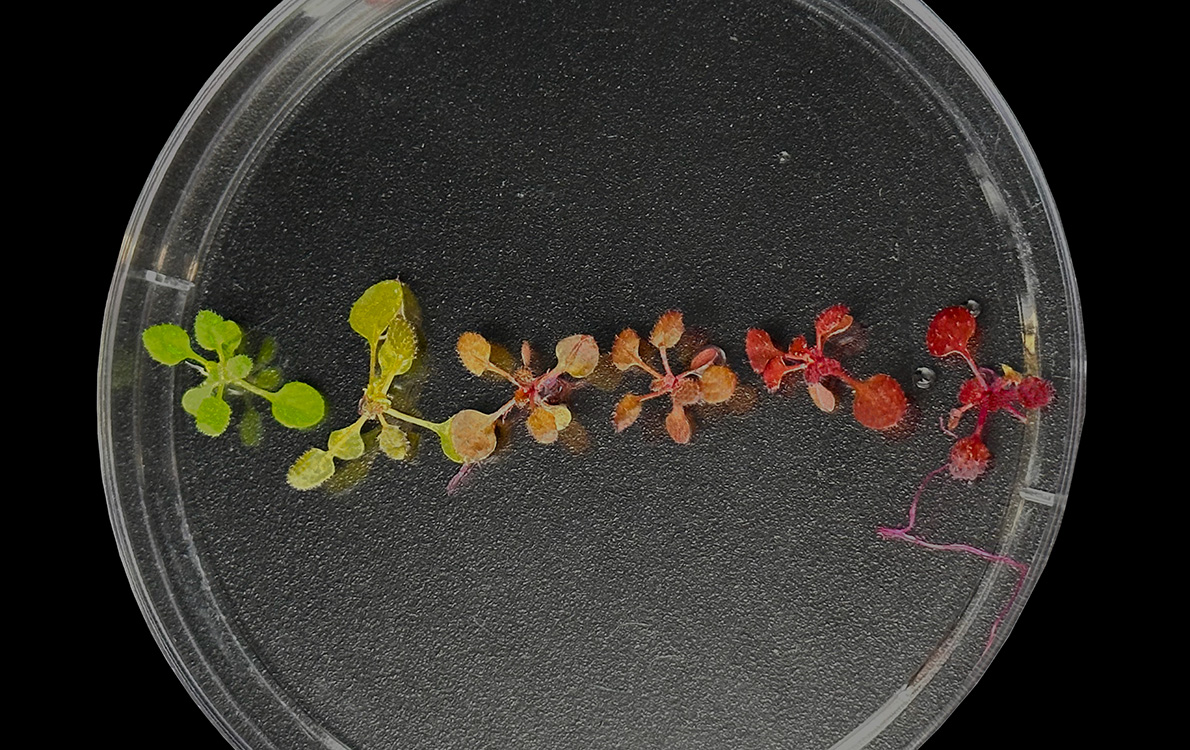New research by a team that includes scientists from Biosciences shows that some simple changes to Agrobacterium tumefaciens can significantly improve the efficiency of introducing DNA into a genome, a process known as transformation. Agrobacterium in the wild causes damaging tumors in flowering plants, including some economically important crops, but its ability to insert its own DNA into host plants is what makes it both a pest to farmers and a powerful tool for biotechnology.
The research, recently published in Nature Biotechnology, was led by Patrick Shih, Deputy Vice President, Feedstocks Division and Director of Plant Biosystems Design at the Joint BioEnergy Institute (JBEI), a DOE Bioenergy Research Center led by Berkeley Lab.
“The current plant transformation approach is slow and stands as a significant bottleneck in the push to develop biology-based fuels and materials that aren’t derived from petroleum,” said Shih, who is also a faculty scientist in Berkeley Lab’s Environmental Genomics and Systems Biology Division.”
“With our research, we’ve been able to improve our ability to introduce DNA into plant genomes,” said Shih. “And by being able to transform plants and fungi more efficiently, we can improve our ability to make biofuels and bioproducts.”
The milestone is part of a broader effort at Berkeley Lab to harness the power of microbes and plants to make new biology-based products, materials, and fuels while reducing our dependence on plastics and fossil fuels.
Read more at the Berkeley Lab News Center




